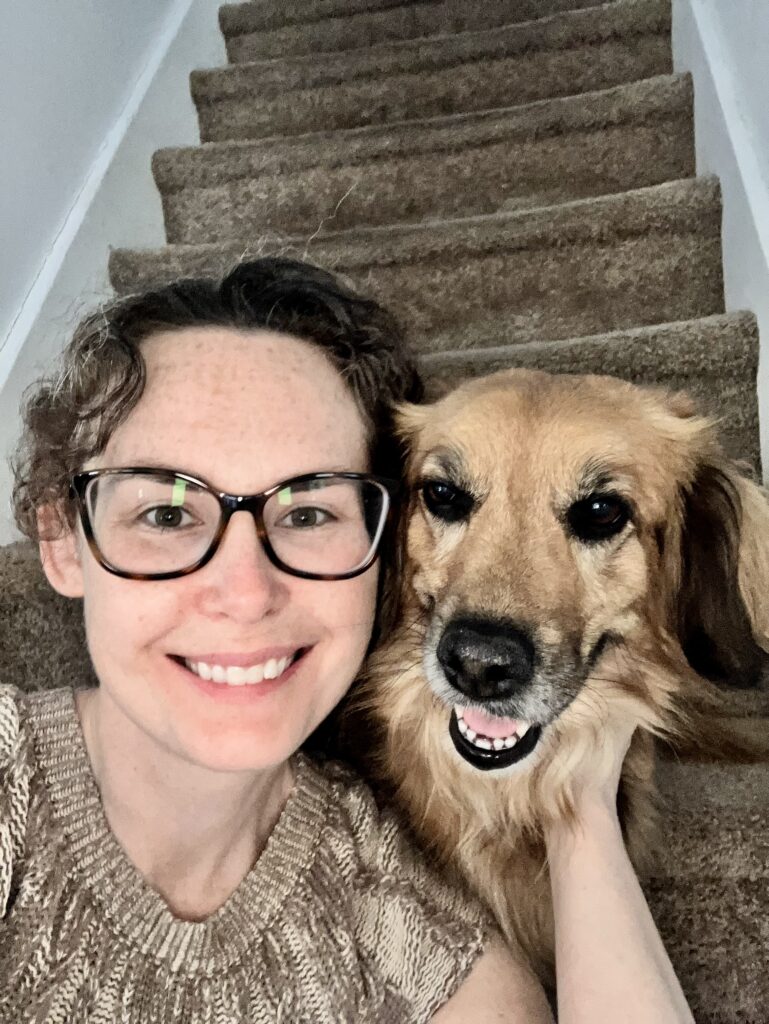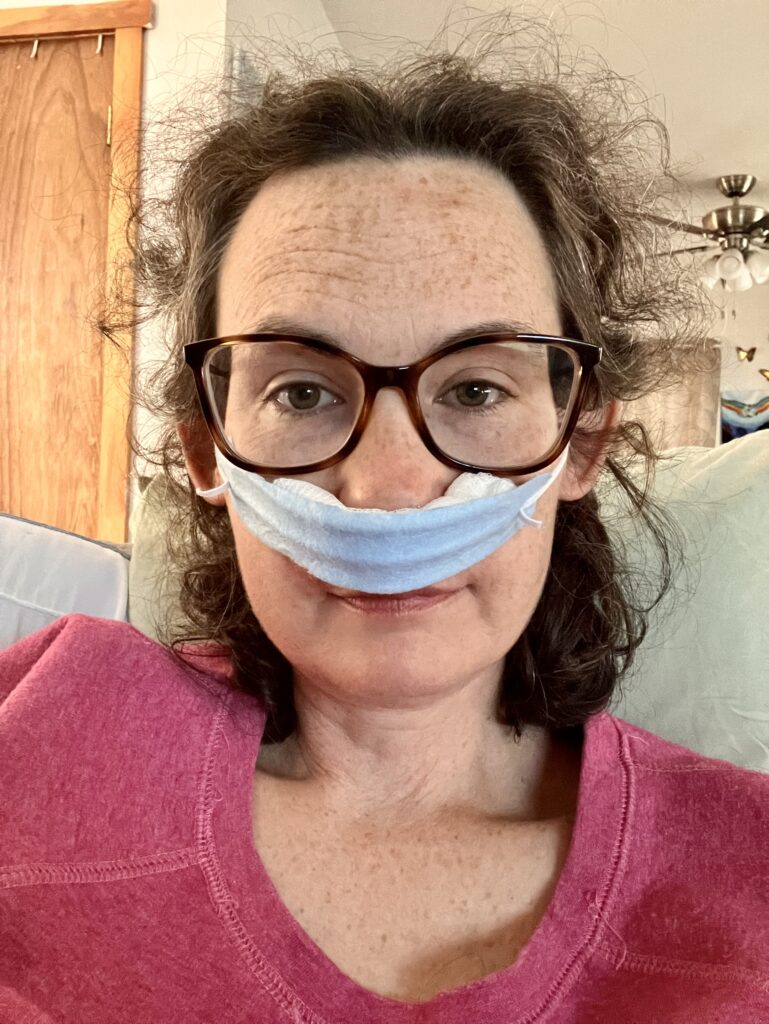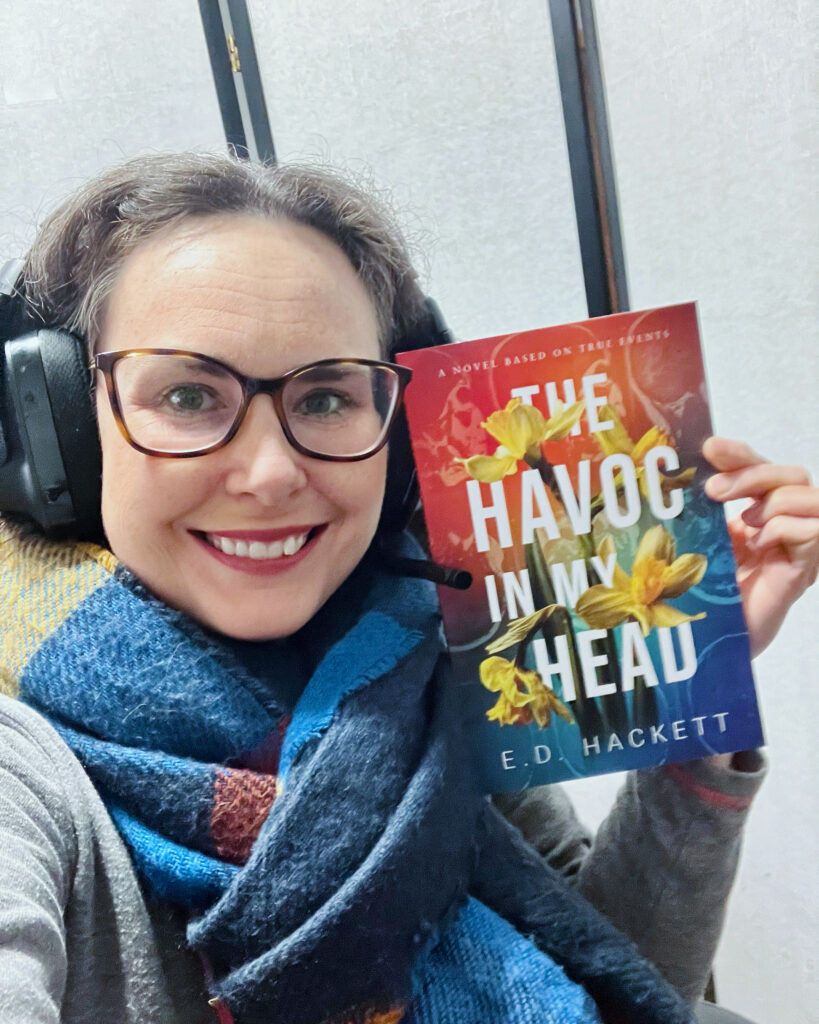
In Summer 2019, Edy noticed that everything was very dark. “It felt like I was wearing sunglasses, all the time. Whether I was inside, outside, raining, sunny, everything was very dark. And I remember being outside and lifting my glasses, thinking they were sunglasses, because everything was dim.” That’s when she realised something was wrong.
She also realised that she couldn’t recognise anyone’s faces in the school she worked in. After visiting an ophthalmologist, she was advised to see a neurologist. During this time, Edy was unable to work, read or drive. Whilst waiting for the appointment she had to go to the emergency room where she was diagnosed with a non-functioning adenoma. It was three centimetres in diameter and pushing on her optic nerve.
Edy had little support from her regular doctor: “My primary care doctor was no help. We ran the typical labs and she said everything looks normal. I had gained a lot of weight, and I was losing my hair, and she said, ‘you need to take better care of yourself. You need to exercise more and get better sleep.’ There was no help at all.”
After her diagnosis, Edy, although supported by her friends and family, felt like no one really understood what she was going through. “They didn’t really understand what was going on or how it was affecting me. I was at home and learning about it myself, so I was able to educate others as I learned. They became more supportive with time, but no one knew what this was.”

After her diagnosis Edy had surgery to remove the tumour. Unfortunately, the neurosurgeon was unable to remove any of the tumour as they “didn’t have the proper tools,” since they hadn’t realised how fibrous the tumour was. Unfortunately, the surgery had a huge impact on Edy “I woke up from that surgery, so nauseous, and vomiting all the blood in my stomach, and she tells me that we have to go in again. And I’m just like, no!”
Edy had her second surgery 8 weeks after the first, this time with the correct tools and two surgeons. “Due to the location with the carotid artery and the time constraints, they were only able to get two thirds of the tumour out. So when I came out of that, it was a 20 hour surgery. My poor husband. I went into surgery at eight in the morning, and I wasn’t moved out of the operating room until after midnight.” As they weren’t able to remove the entire tumour Edy was told that she could either have surgery again or have six weeks of radiation.

Edy had radiation which was able to shrink the tumour, and it hasn’t grown since. Unfortunately, more recently Edy experienced a spontaneous cerebral spinal fluid (CSF) leak, and had to have a third surgery. She is now on hormone replacement for cortisol and hypothyroidism. “My vision and my optic nerve are permanently damaged because the tumour had been sitting against it for so long. But it is what it is. I can read, I can write, I can drive. It’s functional, although it’s definitely not perfect.”
The entire experience changed Edy’s outlook on life. “Prior to the tumour I was working nine to five, five days a week. Juggling work and home and kids and family, and it was exhausting. Then this happened and my life was in flux. When my vision returned, and I could see the colours of the flowers outside, it was amazing. Every sunset was fascinating. I couldn’t believe how lucky I was to be seeing those amazing colours again!”
During Edy’s recovery, she journaled her experiences: “After the second surgery, my radiation was delayed because of COVID, and I needed to process what I was going through. I decided to start writing it down in a journal.”

Edy ended up writing this journal into a book. “I wanted to write something that could be shared with family or friends of patients going through this. Or even the doctors to help them understand it from the patient’s perspective. They’re often desensitised to what it does to a person, so I wanted to write something that would give perspective, from the physical standpoint, the emotional standpoint and how it affects the family. I ended up writing this novel about my experience. I’m so proud of it. I think it’s helped a lot of people. I just wanted to provide a layer of support, because I feel like a lot of times people don’t get it, especially the mood and the hormonal aspect. I know everyone is different, but I truly believe that the emotional journey we all go through is very similar.”
You can read Edy’s book, The havoc in My Head, on amazon.







